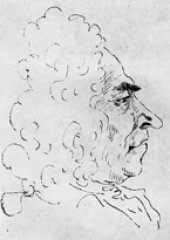Francesco Gasparini, who was born in Camaiore – near Lucca - on March 19th 1661. He was the second-born of five children, and his parents, Nicolao and Elisabetta Belfiore, baptized him in the collegiate church of S. Maria Assunta. We have only little information about his first training in the town where he borne, but he may have finished his musical studies in Rome under the guide of Bernardo Pasquini and Arcangelo Corelli. The move to the Capital probably took place before 1682, when he was the organist of the church of Madonna dei Monti. The young musician already revealed a perfect command of singing, violin and keyboard instruments. In 1684 he was admitted into the Philharmonic Academy of Bologna as a singer, and the next year as a composer. His opera debut are strictly related with the city of Livorno, where in 1686 the Roderico - continued in 1684 in Brescia with the music of Carlo Francesco Pollarolo - and the Olimpia vendicata - which was based on the Neapolitan version by Alessandro Scarlatti, and then rearranged for Rome - were performed. During his career Gasparini often rearranged for several theatres libretti that he had already played, because this was a custom of the music drama of the seventeenth-eighteenth century. The move to Venice in 1701 gave Gasparini the coronation as a theatre author - not only as regards operas but also intermezzi. In Venice he worked as Chapel Master of the Ospedale della Pietà until 1713, and he played twenty-four music dramas between 1702 and 1713 - almost all of them performed in the Theatre Tron at San Cassiano. The delicate years of the passage between the late seventeenth century and the first years of the next century, which were full of transformations in the history of Melodrama, influenced his style, that became progressively more elaborate. In the scores the number of the aria accompanied by the bows orchestra increases in comparison with those aria that are supported by the only thorough bass. In these aria the violins - which are sometimes doubled by the oboes - constitute a soft support, or venture upon some solo, while the recitatives astonish for the accuracy of the writing. After the work at the Ospedale della Pietà, Gasparini moved with his family in an Estate at Città di Castello, but only for a short period. In fact he moved again to Rome from 1716 to 1718, and he worked for the Prince Francesco Maria Ruspoli, with the task of writing and directing the music for the Academies and the Oratories, controlling the accounts of the copyist, and ordering the binding of the scores. Between 1718 and 1724 he composed many opera, that were performed in the most important Italian theatre: Rome, Venice, Milan, Turin and Reggio Emilia. In 1725 he worked as Chapel Master in the church of San Giovanni in Laterano in Rome, where he remained until his death - March 22nd 1727. Although Gasparini was an important character in the Italy of the first thirty years of the eighteenth century - when he got a big fortune - and although he was a polished artist, with a melodic creativity which was convincing and charming, and ready to try new solutions - for example in the oratory genre - people forgot him very early and the music of his melodramas was dispersed. The activity of teacher and the treatise on accompanying, L’armonico pratico al cimbalo, 1708, which was a method to guide the use of thorough bass and had many reprints until 1839, gave to Gasparini a more lasting fame.
Vocal Music
Il Bajazet. Dramma per musica. (1719)
Intermezzo "Mirena e Floro" ovvero "Nana francese e armena"
Aria "Aure grate"
Instrumental music
Ouverture in Sol min. dal dramma per musica "Antioco"










